5 Awesome Tips to Boost Your Child’s Math Skills Easily!
Helping kids to be good at math is easy using these five steps to improve a children’s math skills that we provided for smart parents like you.
[include_netrun_products_block from-products="product/tsi-math-exercise-book-a-comprehensive-workbook/" product-list-class="bundle-products float-left" product-item-class="float-left" product-item-image-container-class="p-0 float-left" product-item-image-container-size="col-2" product-item-image-container-custom-style="" product-item-container-size="" product-item-add-to-cart-class="btn-accent btn-purchase-ajax" product-item-button-custom-url="{url}/?ajax-add-to-cart={id}" product-item-button-custom-url-if-not-salable="{productUrl} product-item-container-class="" product-item-element-order="image,title,purchase,price" product-item-title-size="" product-item-title-wrapper-size="col-10" product-item-title-tag="h3" product-item-title-class="mt-0" product-item-title-wrapper-class="float-left pr-0" product-item-price-size="" product-item-purchase-size="" product-item-purchase-wrapper-size="" product-item-price-wrapper-class="pr-0 float-left" product-item-price-wrapper-size="col-10" product-item-read-more-text="" product-item-add-to-cart-text="" product-item-add-to-cart-custom-attribute="title='Purchase this book with single click'" product-item-thumbnail-size="290-380" show-details="false" show-excerpt="false" paginate="false" lazy-load="true"]
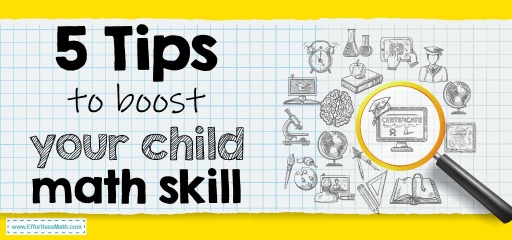
Why Does Your Child Need to Improve Math Skills?
In today’s competitive environment, those who major in a STEM field – science, technology, engineering, and mathematics – have exponentially better opportunities in life.
If you want the best for your child, chances are you already have read up on the importance of childhood education.
Early childhood education, in particular, has been shown to positively impact a child’s ability to learn, tackle challenges, and think creatively later in life.
The Best Book to Ace Math for Grade 4
The United States leads the world in innovation and research – and it’s a proud tradition that is deeply rooted in our history.
Much research in fields ranging from medicine to literature to space exploration heavily depends on math skills.
From designing the latest iPhone to making reusable rockets, math geniuses are in high demand around the country and the world.
Those who are good at math also have the advantage of looking at things from a more analytical point of view.
This goes a long way not only at work but in life in general as well.
How to Boost Your Child’s Math Skills in 5 Steps!
With increasing learning theories and teaching methods being implemented, choosing the most effective techniques for your child to learn math fast can become hard.
Here are five steps to boost your child’s math skills:
1- Focus on Elementary Math Concepts
Math relies on a set of elementary concepts upon which the entire field is built.
Making sure your child understands math basics instead of memorizing long algebraic equations is the first step to learning math fast.
You can do this by involving your children in activities or starting with blocks and other interactive toys to establish a foundation for learning.
Don’t pressure your kid into solving hard math problems. Instead, try to ease them into loving math.
Not knowing the math basics is why most kids hate math in school. This can persist in the future to impact their career life.
2- Improve Mental Math in Your Kid
How many times have you been amazed by someone who can calculate large numbers in their mind instantly? Let’s not kid ourselves, which is pretty darn impressive.
If you want to get your kids in action, help them develop the thinking skills required.
Developing a love of math in kids can be accomplished using flashcards or memory games.
Use flashcards to improve mental math in kids
Flashcards are good for improving your child’s mental math through repetition. And using flashcards as a part of educating them is fun and effective.
Use memory games to improve mental math in kids
Besides flashcards, you can use math memory games with math operations like addition, subtraction, multiplication, and division to improve mental math in your child.
3- Make Learning Math More Fun for Your Kid
People often frown when it comes to learning math, and kids aren’t any different. Get over this obstacle by making the math learning process fun.
A simple solution is to use educational games and activity books to help develop your child’s math skills.
For example, Math Puzzles can be a good choice to encourage your kid’s curiosity in a fun way.
Solve math puzzles with your child
Math puzzles are a fun part of mathematics and can improve critical thinking in children.
Try math games for education and fun
Consider math games as a part of everyday family activities. Math games can help kids learn and love mathematics.
Reward them for their accomplishments
Rewarding children when they solve a math problem or puzzle will program their minds to be problem solvers for rewards.
The Absolute Best Book to Ace Grade 3 Math
4- Go Beyond the Math book to Help your Kid become Better than their Classmates
Help your child explore the world of math by adding math problems from outside their regular coursework.
This will help them think on their feet and put more effort into learning math.
5- Apply the Math Knowledge in Real World Scenarios
Humans are wired to retain the information and skills necessary to succeed.
By showing your child real-life examples of how math works in the real world, you can lay the foundation for your child to learn math fast.
Teaching your child math skills is synonymous with equipping them for a bright future and success in the long run.
Distances, speed, and driving time
Calculating driving time using speed and distance is an example of using mathematics in real-life scenarios.
So next time your child asks you, “How long does it take to get there?” teach them to calculate the driving time based on the speed and destination distance.
Discount, Tax, and Tip
Calculating discounts for a product’s price or paying taxes and giving tips are the best methods to teach your child how to use percentages.
Building and Construction
Building and construction are good examples of real-life math applications where kids can apply math skills in practice.
Here are some ways that kids can use math while building and constructing:
Measuring and cutting materials
In construction, measuring and cutting materials accurately is important. Kids can use math skills such as measuring, calculating, and estimating to ensure the materials are cut to the correct length and angle.
For example, they can use a tape measure to measure a board’s length, and a saw to cut it to the correct length.
They can also use math to calculate the angle to make precise cuts, such as when cutting a board for a roof or stair tread.
Calculating angles and distances
Kids can also use math to calculate angles and distances in construction.
For instance, they can use trigonometry to calculate the angle of a roof pitch or to determine the correct slope of a ramp.
They can also use math to determine the distances between points on a construction site, such as space between two walls.
Determining the number of materials needed
In construction, it is important to determine the number of materials needed for a project.
Kids can use math to calculate a space’s volume or area to determine the required materials.
For example, they can use math to calculate the volume of concrete needed for a foundation or the amount of drywall required for a room.
Budgeting
Building and construction projects involve budgeting, which requires math skills such as addition, subtraction, and multiplication.
Kids can help plan a construction project’s budget by calculating the cost of materials, labor, and equipment.
They can also use math to track expenses and ensure the project stays within budget.
The Absolute Best Book to Ace Math Books for Grade 5
Sports statistics
Use your kids’ favorite sport to teach them statistics.
The current League table or historical statistics about their favorite sports team is the best option when asking a mathematical question.
Cooking recipes
Math is widely used in cooking recipes when following instructions for cooking a meal or making a dessert.
Especially when you have a busy family, teaching math when cooking a meal for family members fills two needs with one deed.
Gardening
Gardening involves measuring, calculating, and estimating.
For example, kids can use math to determine how much soil or fertilizer is needed, how many plants can fit in a specific area, and how much water is required.
Gardening involves many math-related concepts, such as measuring, calculating, and estimating.
Here are some ways that kids can use math while gardening:
Measuring soil and fertilizer
When planting in a garden, it is important to have the right amount of soil and fertilizer.
Kids can use math to calculate the volume of soil or fertilizer needed for a specific area.
For example, they can calculate the cubic feet of soil needed for a garden bed by measuring its length, width, and depth.
Determining plant spacing
Another math skill that can be applied in gardening is determining the spacing between plants. It is important to give each plant enough space to grow properly.
Kids can use math to determine the distance between each plant by dividing the total area of the garden by the number of plants they plan to grow.
Calculating watering needs
Watering is a critical part of gardening, and math can help determine the correct amount of water needed for the plants.
Kids can calculate the water requirements based on factors such as plant type, weather conditions, and soil moisture levels.
Harvesting and yields
When it comes time to harvest the fruits or vegetables, math comes into play again.
Kids can use math to calculate the yield of their crops, track the growth of plants over time, and plan for future planting seasons based on past yields.
Garden budgeting
Managing a garden involves budgeting for supplies, tools, and maintenance costs.
Kids can learn about budgeting by tracking expenses, comparing prices of gardening products, and planning for future garden projects within a set budget.
Related to This Article
More math articles
- Take GED Test Online for Free
- FREE 6th Grade MEAP Math Practice Test
- How to Get a PhD in Math
- 8th Grade RISE Math Worksheets: FREE & Printable
- Number Properties Puzzle – Challenge 22
- Six Best Ways to Help Improve Your Math Scores
- CLEP College Algebra FREE Sample Practice Questions
- 7th Grade Common Core Math Practice Test Questions
- The Ultimate ISEE Middle-Level Math Course (+FREE Worksheets & Tests)
- SSAT Middle-Level Math Worksheets: FREE & Printable
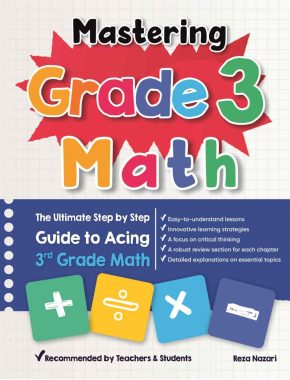
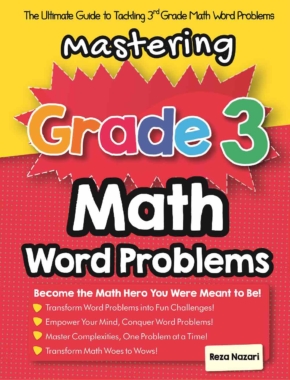

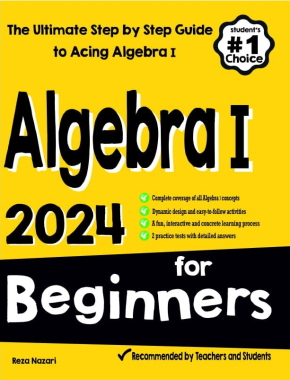
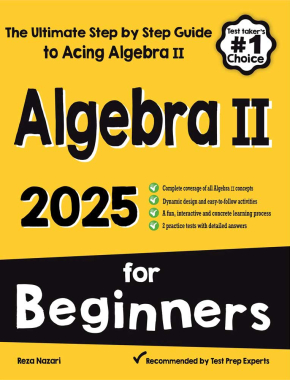
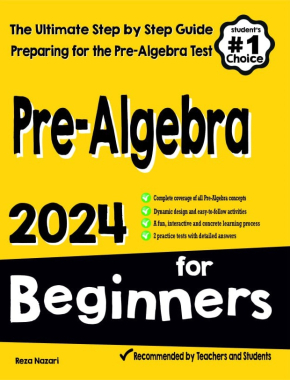
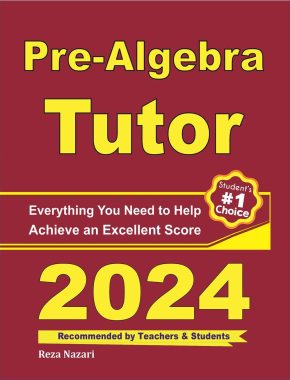
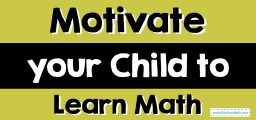
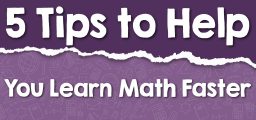
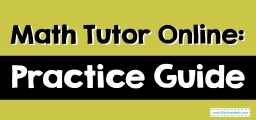
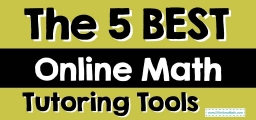
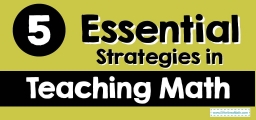

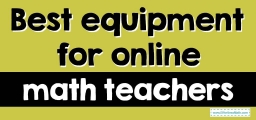



What people say about "5 Awesome Tips to Boost Your Child’s Math Skills Easily! - Effortless Math: We Help Students Learn to LOVE Mathematics"?
No one replied yet.